£1.5m green corridors to and from UK ports
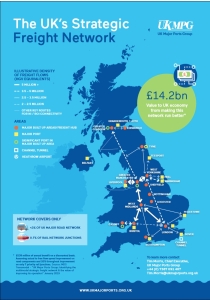
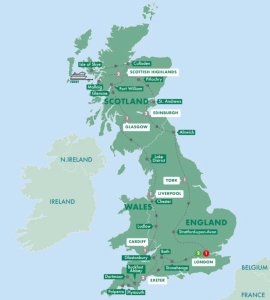
 By Marek Grzybowski
By Marek Grzybowski
The UK government is launching a £1.5 million tender process to meet its net zero commitments, create jobs and grow the economy, the UK Transport Secretary announced in early April this year. The funds will be allocated to creating the necessary infrastructure and solutions leading to the creation of ecological shipping connections. If the program is successful, it will create zero-emission shipping routes between the UK, the Netherlands, Norway, Denmark and Ireland, ensuring cleaner journeys for passengers and goods, the UK government says.
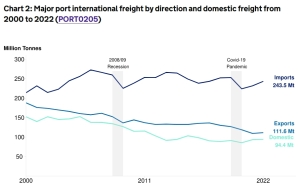
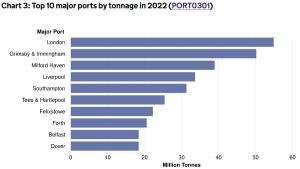
British ports tranship approximately 115 million tonnes of goods quarterly. The majority of cargo transhipped in ports reaches Great Britain by sea. In 2022, it was approximately 243.5 million tons. In 2023, the supply of cargo in British ports decreased by 4% in the first 3 quarters to 434.2 million tons. The dominant cargo transported from and to British ports are liquid cargo (180 million tonnes in 2022).
In the ro-ro system, approximately 100 million tons are transported, dry cargo is approximately 95 million tons, in the lo-lo system, more than 60 million tons are transhipped, and more than 15 million tons are other general cargo. In 2022, exports ensured transshipment of 111.6 million tonnes. Cabotage transport of cargo between British ports in domestic traffic reached 94.4 million tonnes.
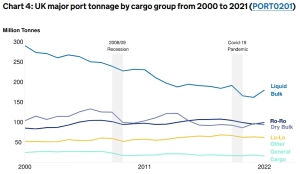
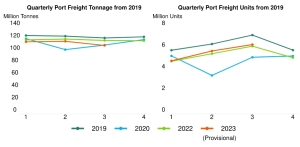
Fifth round for “green corridors”
The competition (CMDC5 – Clean Maritime Demonstration Competition) will support feasibility studies aimed at accelerating the development of “green corridors”. As part of these activities, the infrastructure required along maritime connections will be designed. The idea is “to enable ships to have access to clean fuels and charging systems” and to review the law to guide the industry in decarbonization efforts.
It is emphasized that the program aims to achieve the assumed commitments to achieve net zero emissions without imposing additional costs on taxpayers. The idea is to find ways to minimize the costs of producing ecological fuels. One development strategy is green shipping links connecting the UK with the Netherlands, Norway, Denmark and Ireland.
“By investing in zero emissions maritime connections to and from the UK, we are not only creating a greener sector,” said Lord Davies, Minister for Maritime Affairs, stressing: “we are laying the foundations for long-term sustainability, creating jobs and strengthening economic growth.”
Ecological milestone
The UK Ministry of Maritime Affairs emphasizes that “This is a significant milestone in the UK’s commitment to keep its waters clean – and the aim of this funding is to support the creation of zero emissions international shipping links by mid-2030.”
Attending the meeting, Andreas Bjelland Eriksen, Norway’s Minister for Climate and Environment, said: “The UK and Norway have a long-standing relationship in the field of shipping, and thanks to the initiative taken by the UK in connection with the Clydebank Declaration in 2021, we have been working closely on the development of green corridors shipping’.
“I am very pleased that we will now see the beginning of green shipping corridors between our two countries and I look forward to contributing to our green shipping program,” Eriksen stressed.
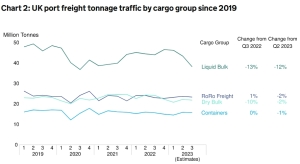
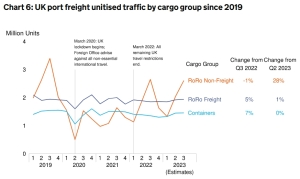
liquid cargo supply at major UK ports fell by 5.9 million tonnes (13%) to 38.1 million tonnes in Q3 2023 compared to Q3 2022. Reductions in the pumping of liquid bulk cargoes are a major contributor to the overall decline in tonnage in UK ports. Compared to the third quarter of 2022, the supply of liquid cargoes decreased by 73%.
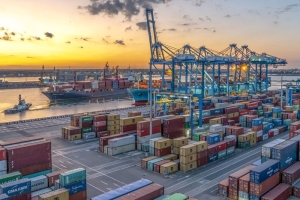
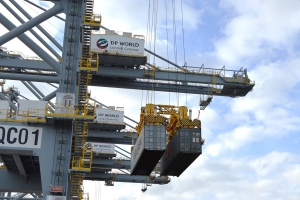
Photos: DP World London Gateway
